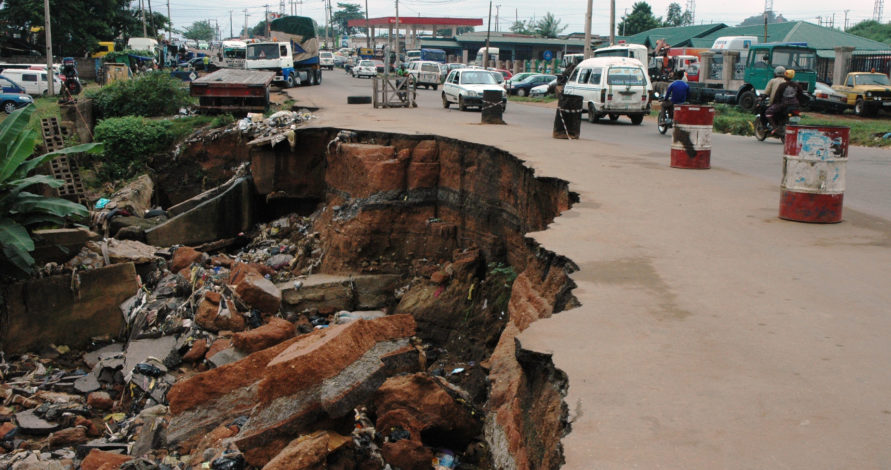By Fola Aina
The Nigerian state is currently confronted with multiple security threats, most of which emanate from, and are perpetuated by violent non-state actors (VNSAs). In the troubled Northeast region, the predominant threats include the activities of violent extremist organisations such as the Boko Haram driven by a political ideology of establishing an Islamic Caliphate, and its first breakaway faction Ansaru, as well as its second breakaway faction, the Islamic State in West Africa Province (ISWAP). The most affected states include Adamawa, Borno, and Yobe states, popularly referred to as ‘BAY’ states. As of 2021, Boko Haram has been responsible for the deaths of 350,000 people,1 and the internal displacement of 2.5million people as of January 2023.2
In the country’s Northwest and Northcentral regions, the activities of armed bandits have devasted local communities. Armed bandits numbering over 30,000 were responsible for the deaths of over 2,600 people3, and the displacement of about 1million others.4 Driven by economic opportunism rather than political ideology, the activities of armed bandits have been mostly manifested through brigandage, theft, kidnappings for ransom, cattle rustling, and sexual violence mostly perpetuated against women and girls. Armed banditry which remains a very significant threat to Nigeria’s national security has its roots in the country’s persistent farmer-herder crisis.
In the Southeast region, secessionist agitations by the Independent People of Biafra (IPOB) and its paramilitary wing, the Eastern Security Network (ESN), have disrupted peace and continues to threaten the freedoms of citizens through the imposition of sit-at-home orders. Added to these are also issues of piracy and terrorism that have plagued the Niger Delta, thereby resulting in the region’s insecurity. In the Southwest region, the activities of cultists, kidnappers and other organised criminal gangs continue to threaten the peace and security of the region as well. These threats have since evolved overtime and adapted making the quest to addressing them even more challenging. This is particularly pertinent as their existence reflects an afront on the state’s monopoly of the use of force.
The degree of severity across these multiple threats varies, given that they have the potential to continually derail social, political, and economic development across the Nigerian state. Collectively, these threats pose significant challenges to human security in Nigeria. These
challenges are mostly manifested in the effects of these threats to human lives and livelihoods. Furthermore, they constitute a grave threat not only to Nigeria’s national security, but also to those of its immediate neighbours such as Cameroun, Chad, and Niger in the Lake Chad Basin region as well as the Sahel region.
Nigeria’s current security architecture is ill-positioned to address these threats. From issues associated with the lack of adequate equipment to those of manpower shortages and non-professionalism, the challenges confronting the security sector abound. This has also contributed towards the proliferation of private security companies (PSCs) in complementing the security provisioning across the country.
Tackling growing insecurity efficiently and effectively will demand reviewing and changing how the security sector is governed in Nigeria. This is in addition to recalibrating the state’s coercive apparatus and repurposing its preparedness and responsiveness to these threats. The Nigerian state has mostly responded to threats to its national security in a reactionary way, rather than proactively.
Repositioning National Security Through Improved Governance
Currently, Nigeria’s national security architecture can be broadly categorised under two sub-headings. These include internal security and external security. Under internal security the state’s institutions mostly saddled with the responsibility of protecting the state from internal threats include the Office of the National Security Adviser (ONSA), the Nigerian Police Force (NPF), the Nigerian Police Intelligence Response Team (IRT), the Department of State Security (DSS), the Federal Ministry of Interior, the Nigerian Customs Service, the Nigerian Immigration Service, the Nigerian Correctional Services, the Nigerian Drug and Law Enforcement Agency (NDLEA), the Defence Intelligence Agency (DIA), the Economic and Financial Crimes Commission (EFCC), and the Independent Corrupt Practices and Other Related Offences Commission (ICPC), and the Nigerian Counter-Terrorism Centre (NCTC), and the Nigerian Financial Intelligence Unit (NFIU), to mention a few. Others at regional levels include Amotekun in the Southwest region, and Ebube Agu in the Southeast region, in addition to local vigilante groups.
With respect to external security, it is pertinent to note that the Office of the National Security Advisor (ONSA) also plays a fundamental role in this regard. Others also include the Nigerian Customs Service and the Nigerian Immigration Service, the Nigerian Intelligence Agency (NIA), the Nigerian Counter-Terrorism Centre (NCTC), the Nigerian Armed Forces (The Nigerian Army, the Nigerian Navy, and the Nigerian Air Force), the Directorate of Military Intelligence, Army Intelligence, Naval Intelligence, Air Force Intelligence, the Defence Intelligence Agency (DIA), and the Regional Intelligence Fusion Unit (RIFU) amongst others. It is equally significant to note that the military is fundamentally the state’s coercive apparatus deployed with the goal of averting external aggression against the Nigerian state, given the NPF’s incapacity to address the country’s multiple threats, the military has since assumed an active role in internal security management as well. As of November 2018, Nigeria has had only 334,000 police officers.5 In addition to being overstretched, as of 2019, Nigeria’s total military forces stood at 223,000 personnel.6
The threats to Nigeria’s national security can be broadly categorised into five dimensions. These include the political dimensions, given that some of these threats are triggered by political issues such as actual or perceived political marginalisation. There is also the socio-economic dimension, which stems from issues such as poverty, inequality, unemployment, and illiteracy amongst others. There is also the environmental dimension which bothers on issues such as climate change resulting in desertification and deforestation, water supply shortages, resulting in conflicts over increasingly scarce natural resources. The fourth dimension is the ethno-religious dimension which reflects tensions resulting in communal clashes. Another very significant dimension is the cyber security related dimension. This dimension is mostly manifested through propaganda, the spread of misinformation, and hacking through malware.
Nigeria’s response to national security threats appears to be overly militaristic. The issue with this is that it has the unintended effect of neglecting “human security” which is required in gaining the support of those affected. This is critical to the exchange of influence between the state and society in the pursuit of mutually-linked security goals and objectives. A viable option towards repositioning Nigeria’s national security architecture would be the adoption of an integrated approach towards national security, one which has “human security” at the centre of it all. This implies a prioritisation of the wellbeing of humans, as members of society, to whom the state is obligated to protect by provisions of the constitution and in accordance with the social contract. The components of this integrated approach to national security entails economic security, social security, food security, housing security, health security, and cultural security. To effectively address national security threats, these components are expected to considered not in isolation, but collectively as a whole.
Recommendations:
To better position Nigeria’s national security architecture to respond more efficiently and effectively to the multiple threats confronting the country, the following are some recommendations:
- The need for a review of the National Security Strategy (NSS) every five years. Nigeria’s approach to national security is essentially derived from the NSS. Given the nature of the new and emerging threats to the country’s territorial integrity, which has resulted in irregular warfare within its shores, the NSS should reviewed every five years to ascertain what works and what does not.
- Establishment of the Office of the Director of National Intelligence (ODNI), not as a separate government agency, but under the Presidency. This is to be patterned after a similar institution in the U.S., which was created in 2005 as part of the responses to the 9/11 terrorist attacks, and designed to ensure integration of national intelligence. In the U.S., both the Director of National Intelligence and the National Security Adviser (NSA) report to the president. As it currently stands in Nigeria, the Office of the National Security Adviser (ONSA) plays the role of a coordinating agency on all matters related to national intelligence. This creates room for underperformance on its fundamental role, which is to advise the President on national security matters. The creation of an ODNI would therefore go a long way in ensuring the harmonisation and coordination of all national intelligence thereby fostering the availability of actionable intelligence in a timely manner. This is in line with what exists in the United States of America (USA), which has both the NSA and the ODNI
- Establishment of two designated portfolios, not as separate agencies, but under the Office of the National Security Adviser (ONSA). The recommended portfolios are: the Deputy National Security Advisor (DNSA) on Africa and Economic Affairs and a Deputy National Security Advisor (DNSA) on Grand Strategy, Counterterrorism, and Intelligence. Both portfolios are needed to deepen and broaden the operations of ONSA.
- There is a need for manpower increase across the Nigerian Police Force and the Nigerian Military to provide much needed surge against criminal activities across the country. The current deficiencies that exist with manpower, amongst Nigeria’s security forces leaves them mostly stretched to the limit thereby impeding their abilities to effectively tackle insecurity.
- There is an urgent need to provide state of the art equipment, advanced weaponry, and technology including combat gears, night vision googles, armed drones, surveillance drones and advanced weapon systems across the security forces. The use of state-of-the-art equipment, advanced weaponry and technology offers an edge to Nigeria’s security forces in the increasingly complex and dynamic sphere of asymmetric warfare.
- Regular trainings for members of the security forces are required to sustain their professionalism, and preparedness to address the issues of insecurity currently confronting the country. This should also be strengthened through foreign security forces assistance with partner countries. Doing so regularly would also help to ensure that Nigeria’s security forces are attuned with the latest doctrines, tactics and operational strategies required to persecute the ongoing multiple internal security operations.
- Nigeria’s structure of intelligence should be repositioned to provide actionable intelligence that informs counterterrorism (CT) and counterinsurgency (COIN) operations across the country. This can be better optimised by prioritising a locally driven strategy towards winning the hearts and minds of local communities.
- There is need to prioritise a human security and people-centred approach over the current militarised approach. This should focus on addressing the underlying root causes and triggers of insecurity such as socio-economic grievances, political marginalisation, ethno-religious tensions and environmental degradation.
*Dr. Aina is an international security expert and an associate fellow of the Royal United Services Institute for Defence and Security Studies (RUSI), London, United Kingdom.
[1] United Nations Development Programme, “Assessing the Impact of the Conflict on Development in North East Nigeria”. Available at https://www.ng.undp.org/content/nigeria/en/home/library/human_development/assessing-the-impact-of-conflict-on-development-in-north-east-ni.html (Accessed June 25, 2021).
[2] International Crisis Group, “Rethinking Resettlement and Return in Nigeria’s North East”, Available at https://www.crisisgroup.org/africa/west-africa/nigeria/b184-rethinking-resettlement-and-return-nigerias-north-east, (January 25, 2023)
[3] Ayandele. Olajumoke., and Goos, Curtis., 2021. Mapping Nigeria’s Security Crisis: Players, Targets and Trends”, Available at: https://acleddata.com/2021/05/20/mapping-nigerias-kidnapping-crisis-players-targets-and-trends/ (Accessed 2nd October 2022)
[4] Hassan, Idayat. and Barnett, James, 2022. ‘Northwest Nigeria’s Bandit Problem: Explaining the Conflict Drivers’. In Centre for Democracy and Development. Available at: https://cddwestafrica.org/wp-content/uploads/2022/04/Conflict-Dynamics-and-Actors-in-Nigerias-Northwest.pdf (Accessed 13 July 2022).
[5] Godwin Comrade Ameh, 2018. “IGP Idris Reveals Number of Police in Nigeria”, Daily Post. Available at: https://dailypost.ng/2018/11/14/igp-idris-reveals-number-police-nigeria/ ( Accessed March 27, 2023).
[6] World Bank, 2023. “Armed Forces personnel, Total”, Available at https://data.worldbank.org/indicator/MS.MIL.TOTL.P1?end=2019&start=2019 (Accessed March 27, 2023).




